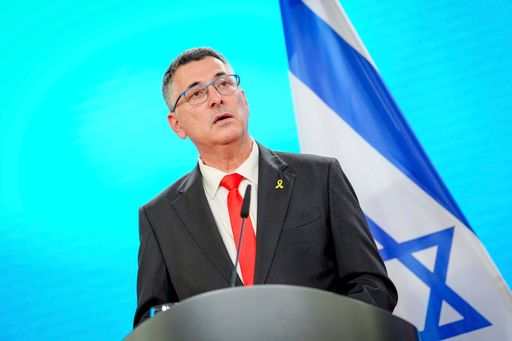President Donald Trump has formally dismantled US sanctions against Syria, hoping to reintegrate the war-battered country into the global economy as Israel eyes ties with Damascus.
In an executive order signed on Monday, Trump ended a "national emergency" in place since 2004 that imposed sweeping sanctions on Syria, affecting most state-run institutions including the central bank.
"This is in an effort to promote and support the country's path to stability and peace," White House Press Secretary Karoline Leavitt told reporters.
She said the United States will still maintain sanctions on elements of the former regime including Bashar al-Assad, who fled to Russia late last year.
Trump lifted most sanctions against Syria in May, responding to appeals from Saudi Arabia and Türkiye after Ahmed al Sharaa ended a half-century of rule by the Assad family.
Syria recently carried out its first electronic transfer through the international banking system since around the time it descended into a brutal civil war in 2011.
Israel kept pounding civilian and military sites in its historic adversary after the fall of Assad.
But Israel said earlier on Monday that it was interested in normalising ties with Syria as well as Lebanon. Neither Syria nor Lebanon officially recognise Israel.

Syria's Golan Heights
Israeli Foreign Minister Gideon Sa’ar vowed on Monday to maintain Israel's grip on the occupied Syrian Golan Heights under any future peace agreement with Syria.
"Israel ruled over the Golan Heights more than 40 years ago, and it will remain as part of Israel under any peace agreement," Sa’ar said at a joint press conference with his Austrian counterpart, Beate Meinl-Reisinger, in West Jerusalem.
"We have an interest in including countries such as our neighbours Syria and Lebanon into the circle of peace and normalisation," based on the so-called "Abraham Accords", he added, without elaborating.
On Sunday, Trump said that some countries expressed interest in joining the normalisation agreements between Arab countries and Israel.

In 2020, the United Arab Emirates, Bahrain, Sudan, and Morocco signed US-sponsored agreements to normalise relations with Israel.
Since 1967, Israel has occupied the majority of Syria's Golan Heights.
After the fall of Assad regime last year, Tel Aviv expanded its occupation into the Syrian so-called “buffer zone” and declared the 1974 Disengagement Agreement with Syria defunct.















